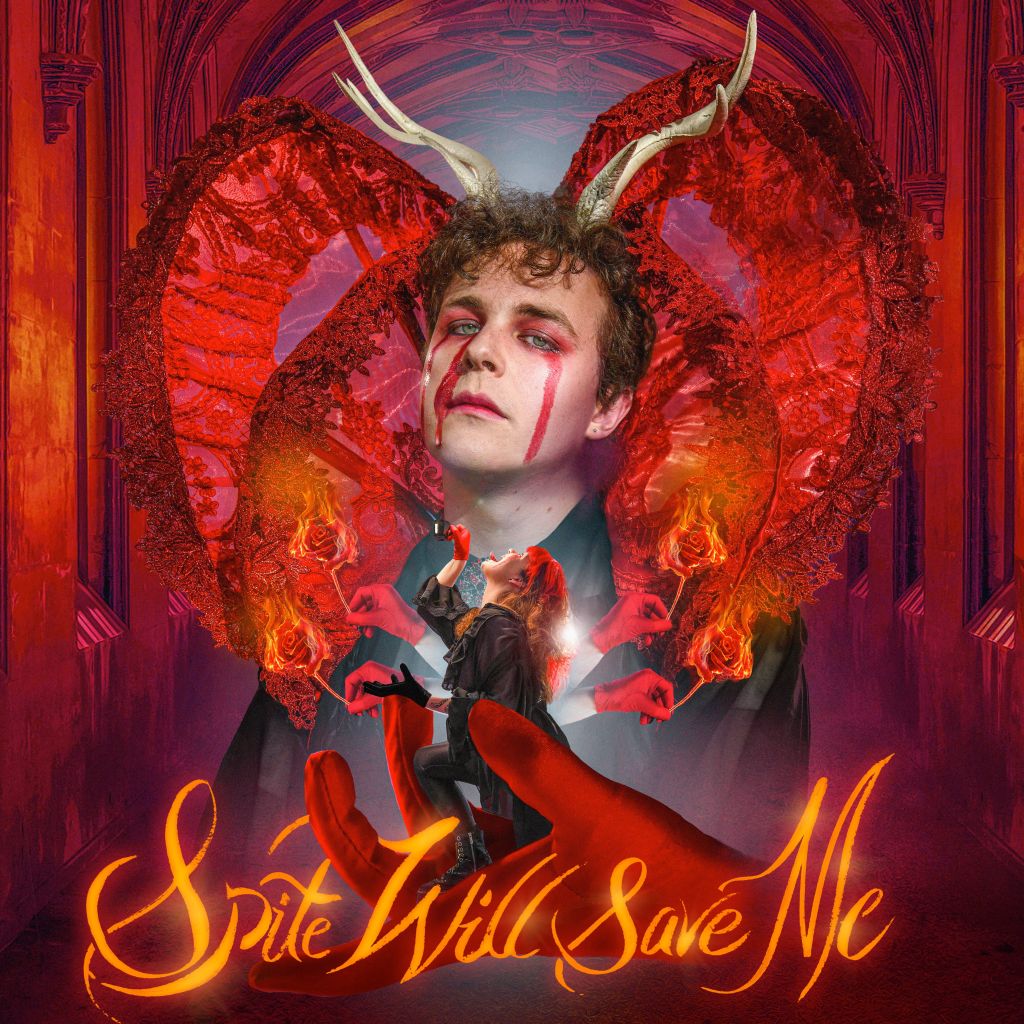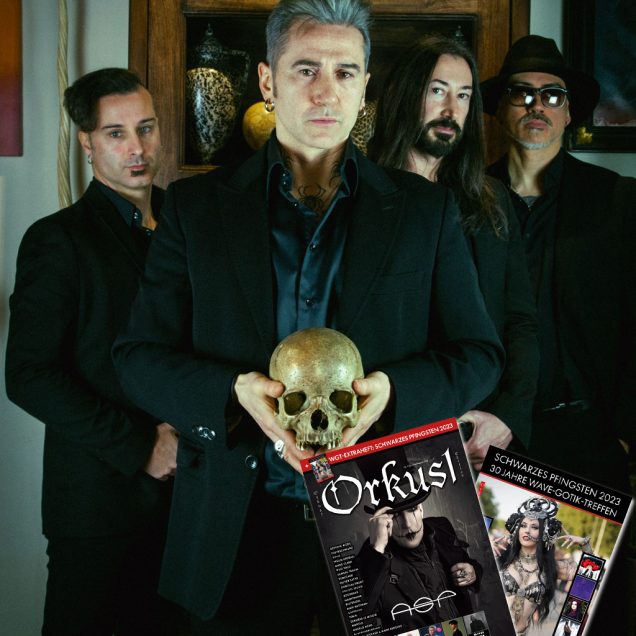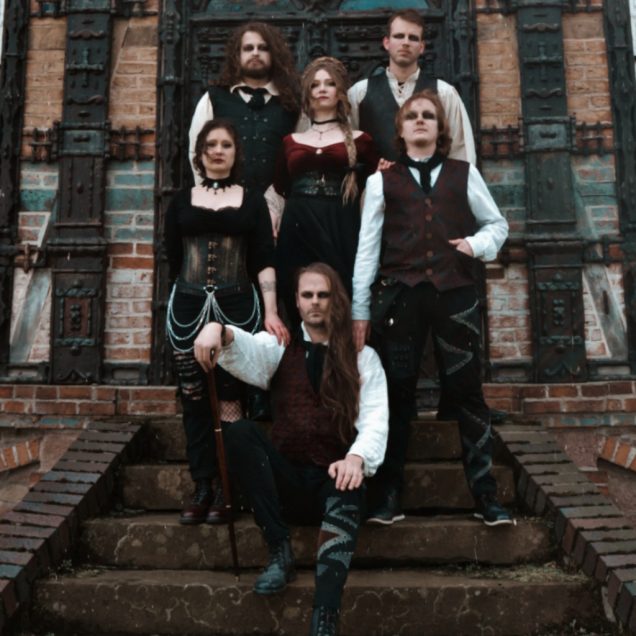CRY CLUB: “Obviously the universe doesn’t want us to make music, but we keep going, out of spite!”

2 Facts:
– The two Australians Heather and Jono met on a plane on the way to Japan.
– While there, Jono watched the television series “Over the Garden Wall,” which is also one of Heather’s favorites. She said that this animated series made her cry. – That’s how the band name Cry Club came about.
After their Punk-Pop debut album “God I’m Such a Mess” (2020), the album title of their second work was extremely difficult. “Spite Will Save Me” was meant to be, on the one hand, a nod to the first album, “but the wicked version,” Jonathon explains, continuing, “It needed to be over-the-top, but less angsty, more aggressive. We also drew a lot of inspiration from the titles that Lingua Ignota used. With her, you feel like it’s both a song title and the title of a classic work of art that somehow depicts violence.” We talk to the likeable duo about outrageous bad luck, the vicious drive as a motivating factor and the cross with genre pigeonholes.
Orkus: In which situations has malice already helped you?
Heather: We’ve had so much bad luck as a band, there’s a joke with our fans about the “Cry Club Curse” where every great opportunity that comes our way comes with a completely random obstacle that we have to overcome in the process (one time part of our equipment literally went up in smoke right before a festival set in 2021). Many people have said that they would have already given up if the same thing had happened to them. Obviously the universe doesn’t want us to make music, but we keep going, out of spite! We were also told to be “less queer” if we wanted to succeed because people wouldn’t book a “strange” band like us. In response, we keep making music to annoy them, and often it’s this mischievous drive that can be more motivating when you start to get worn down and tired.
O: Recently you said that it was almost a miracle that “Spite Will Save Me” was released at all. How was that meant? What particular challenges did you have to face?
Jonathon: When we started recording in March 2021, we felt like we had a clear path ahead of us, we had a reliable support structure. Then when we left the studio we got absolutely ZERO response in the Australian music industry and this new wave of Covid landed in Australia. So somehow we had to pay the bill for the album and at the same time we couldn’t play any concerts. So we spent the next few years getting our feet back on the ground, both creatively and financially. All this time has led us to making our own music videos, but a lot of the work on this album was just “Oh God, how can we afford to finish it.”
O: How has being Australian influenced your sound or the themes?
H: The music industry in Australia can be very hard to crack for indie bands. Touring is very expensive here, most artists rely on a single national “youth” radio station for exposure, and labels are reluctant to take risks on artists who might not fit that radio sound. It can be tempting to tone down the quirky side of your music or identity to have a better chance at labels or radio, but audiences are hungry for something different! That was a big influence for us, to go for big, bold choices in songwriting and imagery, to celebrate our otherness and not be afraid to take risks. We have the freedom to be even crazier because our audience and other bands like us are always ready to support each other.
O: It’s difficult to assign you to a specific genre. Your playlists, which illustrate the influences during the making of the new album, are also very diverse. Where do you see yourselves musically?
J: It’s such a struggle with the genre thing! I think we are a band that feels empowered to explore what is most exciting to us at any given moment, which can be anything! There’s a quote by Brian Eno that says if you expose your audience to a wide range of things early on, they’re not as resistant to style changes – and I think that inspired us a lot and gave us the confidence to experiment. We’re trying to build an audience that engages with us as a Cry Club, not a specific genre or sound. That being said, this record is much more of a guitar Rock album, but each song references a certain type of Rock music. “Like Wildfire” is a noisy industrial-inspired track, while “Hocus Pocus” is indebted to nineties Shoegaze and Stadium Alt-Rock. So when people ask, I say we’re a Pop-Rock band, but right now it’s pretty aggressive!
O: It’s hard to pick just one song, but certainly standing out is “Somehow (You Still Get to Me).” How did it come about?
H: Honestly, we were mostly just blowing off steam! Melbourne took Corona very seriously (which we support!), so we were locked in for most of 2020 and 2021, with very strict rules about when you were allowed to leave and for what reasons. Fortunately, we were still able to write songs together within those rules, and we were committed to having fun with it rather than wallowing in sadness about the situation. The writing process was the most fun we’ve ever had. I was even late for work that day because we kept adding new things to the demo and laughing the whole time. We pretty much didn’t show it to anyone at first because we didn’t think we were “allowed” to release a song with such a cheesy sound, but I think people responded so well to it BECAUSE we were so into it. We both listened to a lot of Glam Rock as teenagers and find it funny that it’s considered such a masculine genre, when bands like Van Halen and KISS performed in glittery spandex and makeup. It felt right to use this dichotomy to tell a story that is specifically and unabashedly queer.
Claudia Zinn-Zinnenburg
Curious about the sound of Cry Club? The album is also available here on vinyl with fancy shirts.

You can enjoy the song “Get Up!” in our Spotify playlist “Dark Rock”:



